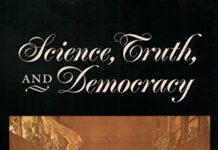
Ebook Info
- Published: 2014
- Number of pages: 194 pages
- Format: PDF
- File Size: 0.55 MB
- Authors: Philip Kitcher
Description
Although there is no shortage of recent books arguing against religion, few offer a positive alternative—how anyone might live a fulfilling life without the support of religious beliefs. This enlightening book fills the gap. Philip Kitcher constructs an original and persuasive secular perspective, one that answers human needs, recognizes the objectivity of values, and provides for the universal desire for meaningfulness. Kitcher thoughtfully and sensitively considers how secularism can respond to the worries and challenges that all people confront, including the issue of mortality. He investigates how secular lives compare with those of people who adopt religious doctrines as literal truth, as well as those who embrace less literalistic versions of religion. Whereas religious belief has been important in past times, Kitcher concludes that evolution away from religion is now essential. He envisions the successors to religious life, when the senses of identity and community traditionally fostered by religion will instead draw on a broader range of cultural items—those provided by poets, filmmakers, musicians, artists, scientists, and others. With clarity and deep insight, Kitcher reveals the power of secular humanism to encourage fulfilling human lives built on ethical truth.
User’s Reviews
Reviews from Amazon users which were colected at the time this book was published on the website:
⭐I liked this book because the author took his time to consider some of the most potent religious arguments against secular humanism. To me, one of the most powerful sections of the book was concerned with what the author termed “refined religion.”In the early 2000s, atheists debated many apologists and popularized the secular humanistic perspective, but they seemed to have difficulty debating people of the “refined religion” perspective. These religious believers readily accept that their religious texts are full historically and scientifically inaccurate information; religious texts may be read as vital myths to help provide a foundation for an ethical life. These believers will also allegorize much of their text and discard many of the ancient doctrines their religion insisted upon for hundreds of years because they see the error in insisting in the truth of things long disproven. They may do this because of the understanding that secular humanism deprives people of the luminous or transcendent.This book considers the fact that humanists may appreciate the luminous and embrace the existence of the transcendent without succumbing to unlikely mythologies or religions. Art, music, poetry, and community can be used to help humanists make lasting change and address this very real human need to understand existence without violating the importance of critical thought and intellectual freedom.
⭐There are several perspectives in the study of religious beliefs. One is to examine why we should believe in gods, or a God. Another is to examine why we should not believe. In this book, Columbia University’s John Dewey Professor of Philosophy examines what religious people think they will lose if they were to exchange faith for secularism. The two main issues are: first, the claim that we would lose our values, our sense of morals – the `without God anything is permissible’ argument; second, that without God our lives would be meaningless. There is a reason for this approach. Kitcher is promoting the case for secular humanism which he says begins with doubt. But one must move on from there so that it can be properly understood and lived as a rewarding way of life. Religions are founded on doctrinal statements that are accepted by the devout, and if we take those doctrines away, we find a void that may have to be filled. Secular humanism does that, and Kitcher provides a clearly written and well-reasoned case for this. Every page of this 159-page book is illuminating. Kitcher deals with the religious preoccupation with the transcendent life and makes an irrefutable argument against that belief. However, he knows that for the believers, no amount of rational argument would persuade them to abandon the idea that after this finite life, there is a better, infinite one. His gently leads the reader to look at the end of this finite life from different perspectives and thus allay fears of death and what comes thereafter. Does it bother us what had been going on 100 years before we were born? Probably not. Many of us do not even know our great-grandparents to have any special bond with them. Would the affairs of the world 100 years after we die bother us? Again probably not. Kitcher rightly points out that what bothers us about death is that we leave behind friends and family, and projects we want to complete. It bothers us that we cannot meet our tennis friends for the weekly hit, or the coffee after that. It bothers us that we would leave behind an unfinished book. `Absence from the period just after my death is poignant because so much of the stuff of my life will be continued in it. Whenever I die, people about whom I care most deeply will live on, and I should like to be there, sustaining them and being sustained by them.’ But once we come to terms with that, we can come to terms with this finite life. Kitcher points the way to looking `forward to a future, to a world without you…where you will no longer be part of the show.’ Kitcher shows not only that there is a firm, rational way to morality and ethics through the path of secular humanism, he also shows the contradictions and inconsistencies of establishing ethical beliefs from a religious base. Naturally, everyone who believes in God believes his God is the true God and that God wants us to live life according to his doctrines. The trouble is that that God cannot make himself universally clear and consistent. It is with the issue of the meaning of life that Kitcher is at his best. He weaves that subject seamlessly into the issue of our finite life, our living ethically without God, and shows what we need to do when our lives go awry – we `should be committed to salvage, not salvation’. He shows us that, ironically, it is the immortal life that is meaningless. It reminds us of what Seneca once said, `In hope of tomorrow, we forfeit today.’ Kitcher’s book is best read with Samuel Scheffler’s `Death & the Afterlife’, 2014 Oxford University Press.
⭐In a conversational style, Mr. Kitcher lays out a reasonable position for a non-dogmatic atheism. The two problems he sees with a dogmatic religious position are the symmetry problem and the problem of identifying value. The symmetry problem arises when one takes a position based on faith. The problem of value arises when one asks the question of who decides what the correct values are. Even if you say the bible has the correct values, you have to decide who provides the correct interpretation. In either case, you are thrown back on human fallibility.In either case, evidence becomes irrelevant, all faith positions become epistemologically equivalent, and you must appeal to a non-faith based criterion to adjudicate between them. In the end, Kitcher says, no matter how you slice it, humans…real living breathing humans decide what is valuable and what counts as important. The human community has decided that is not OK to exterminate whole classes of human beings from the planet based on their ethnicity, race, gender, religion, sexual orientation or beliefs…haven’t we?Two things I wished he had addressed more strongly is the stunted lives religious people live. The presumption is always that religious people have more fulfilling lives. I have found in practice, the opposite.Secondly, I wish he had addressed more strongly the fact that the source of values is separate from the legitimation of values. This is analogous to Popper’s distinction between the context of discovery and the context of justification.That one finds one’s values from the Hebrew bible, Christian bible, Muslim bible or satanic bible is largely irrelevant from the issue of the legitimation of those values.Satan can speak truths and lies…how does one discern? This is the crux of the Islamic problem of the satanic verses of the Koran.It is a book well worth reading if you have any interest in these issue
Keywords
Free Download Life After Faith: The Case for Secular Humanism (The Terry Lectures Series) in PDF format
Life After Faith: The Case for Secular Humanism (The Terry Lectures Series) PDF Free Download
Download Life After Faith: The Case for Secular Humanism (The Terry Lectures Series) 2014 PDF Free
Life After Faith: The Case for Secular Humanism (The Terry Lectures Series) 2014 PDF Free Download
Download Life After Faith: The Case for Secular Humanism (The Terry Lectures Series) PDF
Free Download Ebook Life After Faith: The Case for Secular Humanism (The Terry Lectures Series)





